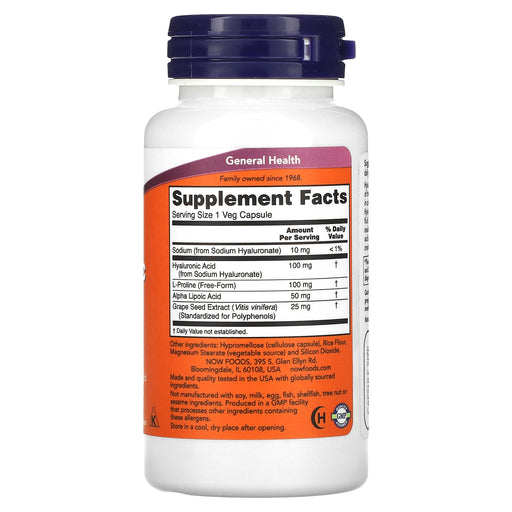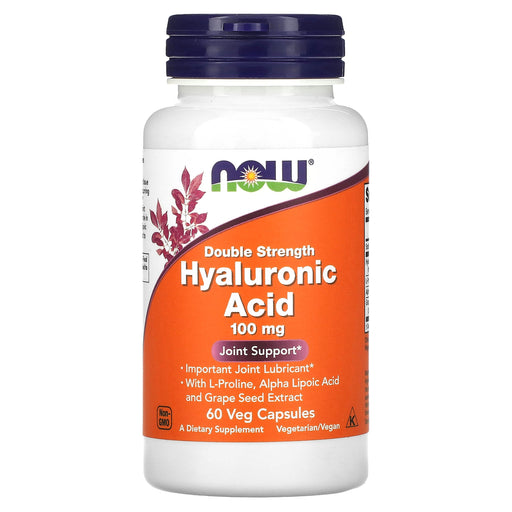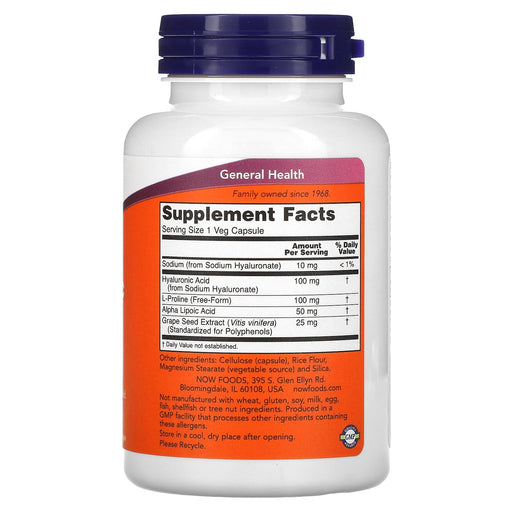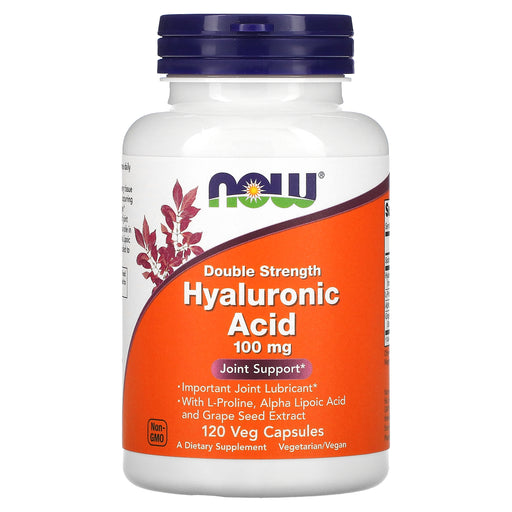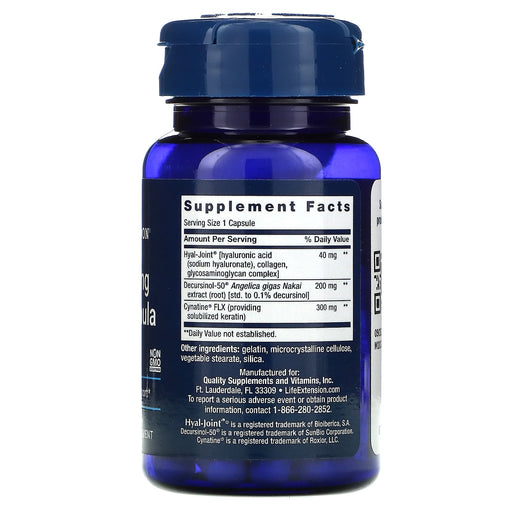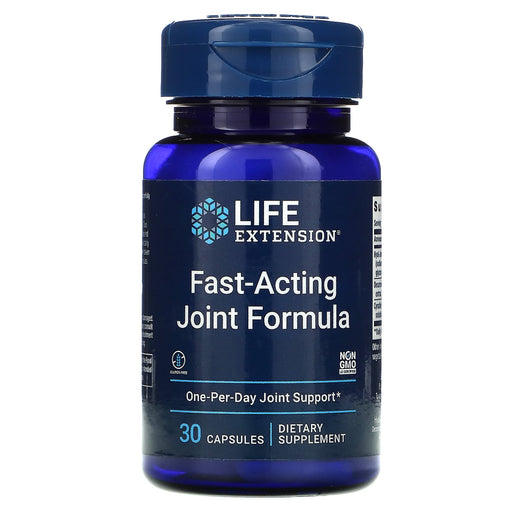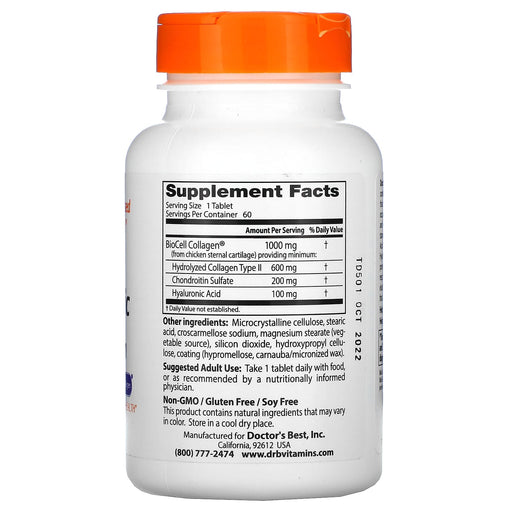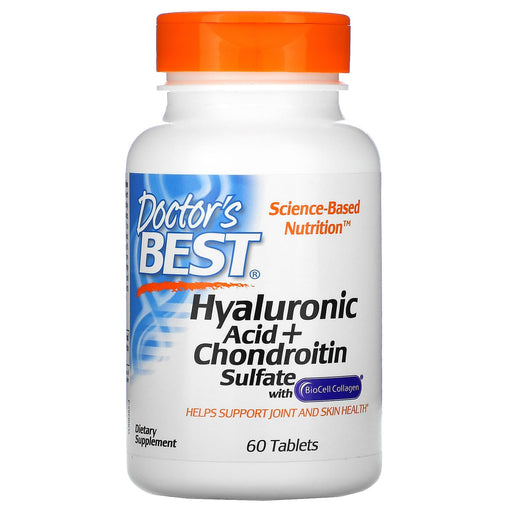
Hyaluronic Acid: The Key to Youthful, Hydrated Skin and Healthy Joints
Hyaluronic acid (HA) is a naturally occurring substance in the body that plays a vital role in maintaining skin hydration, elasticity, and overall health. It is also found in the synovial fluid that lubricates and cushions our joints. As we age, our body's production of hyaluronic acid declines, leading to visible signs of aging and increased joint discomfort. Supplementing with hyaluronic acid can help to replenish these levels, promoting youthful, radiant skin and healthy, comfortable joints.
The Multifaceted Benefits of Hyaluronic Acid
Hyaluronic acid is a versatile compound that offers a wide range of benefits for both skin and joint health. Some of the key benefits of hyaluronic acid include:
- Skin Hydration: Hyaluronic acid has an exceptional ability to attract and retain moisture, holding up to 1,000 times its weight in water. By drawing moisture into the skin and locking it in, HA helps to keep the skin hydrated, plump, and supple.
- Reduced Appearance of Fine Lines and Wrinkles: The hydrating and plumping effects of hyaluronic acid can help to minimize the appearance of fine lines and wrinkles, promoting a more youthful, radiant complexion.
- Improved Skin Elasticity: Hyaluronic acid supports skin elasticity by helping to maintain the skin's structural integrity, allowing it to stretch and bounce back more easily.
- Joint Lubrication and Comfort: In the joints, hyaluronic acid acts as a lubricant and shock absorber, reducing friction and supporting comfortable movement. Supplementing with HA can help to alleviate joint discomfort and stiffness associated with aging or overuse.
- Wound Healing: Hyaluronic acid plays a role in tissue repair and wound healing by promoting cell migration and proliferation, and reducing inflammation.
The Science Behind Hyaluronic Acid
Numerous studies have demonstrated the efficacy of hyaluronic acid in supporting skin health and joint function. Research has shown that:
- Oral Supplementation Improves Skin Hydration: A randomized, double-blind, placebo-controlled study found that participants who took oral hyaluronic acid supplements experienced significant improvements in skin hydration and elasticity compared to those who received a placebo.
- Topical Application Reduces Signs of Aging: Clinical studies have shown that topical application of hyaluronic acid can significantly reduce the depth of wrinkles, improve skin firmness, and enhance overall skin texture.
- Hyaluronic Acid Supports Joint Health: A meta-analysis of randomized controlled trials found that hyaluronic acid supplementation was effective in reducing joint pain and improving physical function in individuals with osteoarthritis.
Choosing the Right Hyaluronic Acid Supplement
When selecting a hyaluronic acid supplement, it's essential to choose a high-quality product from a trusted source. Look for:
- Molecular Weight: Opt for supplements that contain a mix of high and low molecular weight hyaluronic acid, as this can ensure optimal absorption and efficacy.
- Purity and Potency: Choose supplements that are made from pure, high-quality ingredients and are free from contaminants or fillers.
- Brand Reputation: Select supplements from reputable brands with a history of producing effective, science-backed products that prioritize safety and quality.
- Professional Guidance: Consult with a healthcare practitioner before starting any new supplement regimen, especially if you have a pre-existing health condition or are taking medications.
Related Vitamins and Supplements
While hyaluronic acid is a powerful compound on its own, certain vitamins and supplements can complement its action and further support skin and joint health. Some relevant options include:
- Vitamin C: Essential for collagen synthesis, which helps to maintain skin elasticity and firmness. Also supports joint health by reducing inflammation.
- Collagen: The main structural protein in the skin and connective tissues, collagen supplements can help to improve skin elasticity, hydration, and overall appearance, as well as support joint health.
- Glucosamine and Chondroitin: These compounds work synergistically with hyaluronic acid to support joint health, reduce inflammation, and alleviate discomfort.
- Vitamin D: Plays a role in skin cell growth and repair, and supports joint health by reducing inflammation and promoting calcium absorption.
Experience the Transformative Power of Hyaluronic Acid
At Health Orchard, we are dedicated to providing our customers with the highest quality hyaluronic acid supplements to support their skin and joint health. Our carefully curated selection features hyaluronic acid products from trusted brands, formulated with pure, potent ingredients for optimal efficacy and safety.
Whether you're looking to achieve a more youthful, radiant complexion, alleviate joint discomfort, or support overall skin and joint health, our hyaluronic acid collection has the perfect supplement to meet your needs.
Unleash the multifaceted benefits of hyaluronic acid and experience the difference it can make in your skin and joint health. Browse our selection today and take the first step towards a more youthful, comfortable, and vibrant you.
Frequently Asked Questions about Hyaluronic Acid
1. Is it good to take hyaluronic acid supplements?
Yes, taking hyaluronic acid supplements can be beneficial for various reasons:
- Promotes skin hydration and elasticity, reducing the appearance of fine lines and wrinkles
- Supports joint health by lubricating and cushioning the joints, potentially reducing pain and stiffness
- Enhances wound healing and tissue repair
- Moisturizes and soothes dry eyes
- May have antioxidant and anti-inflammatory properties
However, it's essential to choose high-quality supplements and consult with a healthcare professional before starting any new supplement regimen.
2. What is the best hyaluronic acid to take orally?
When choosing an oral hyaluronic acid supplement, consider the following factors:
- Molecular weight: Look for supplements with low molecular weight hyaluronic acid, as it is more easily absorbed by the body
- Dosage: Most studies use daily doses between 120-240 mg
- Purity: Choose supplements free from additives, fillers, and contaminants
- Brand reputation: Opt for reputable brands with third-party testing and quality assurance
Some well-regarded hyaluronic acid supplements include Jarrow Formulas Hyaluronic Acid, NOW Foods Hyaluronic Acid, and Pure Encapsulations Hyaluronic Acid.
3. Who should not take hyaluronic acid supplements?
While hyaluronic acid supplements are generally safe, some individuals should exercise caution or avoid them:
- Pregnant or breastfeeding women, due to limited safety data
- People with a history of allergies or sensitivities to hyaluronic acid or its sources
- Individuals with certain medical conditions, such as cancer or liver disease, should consult their healthcare provider before use
- Those taking medications that may interact with hyaluronic acid, such as blood thinners or nonsteroidal anti-inflammatory drugs (NSAIDs)
Always consult with a healthcare professional before starting any new supplement, especially if you have pre-existing health concerns.
4. What is the best source of hyaluronic acid?
The best sources of hyaluronic acid include:
- Supplements: Oral hyaluronic acid supplements are a convenient and effective way to increase hyaluronic acid intake
- Topical products: Serums, creams, and moisturizers containing hyaluronic acid can help hydrate and plump the skin
- Food sources: While hyaluronic acid is not abundant in foods, some dietary sources include animal-derived foods like bone broth and organ meats, as well as plant-based sources like root vegetables and soy products
- Biosynthesis: The body naturally produces hyaluronic acid, and production can be supported by maintaining a healthy diet, staying hydrated, and protecting the skin from sun damage
5. What does hyaluronic acid do for skin?
Hyaluronic acid offers several benefits for the skin:
- Hydration: Attracts and retains moisture in the skin, improving hydration and plumpness
- Anti-aging: Reduces the appearance of fine lines and wrinkles by promoting skin elasticity and firmness
- Skin barrier support: Strengthens the skin's natural barrier function, protecting against environmental stressors and irritants
- Wound healing: Promotes skin repair and regeneration, helping to heal wounds and reduce scarring
- Soothing: Calms and soothes irritated or sensitive skin, reducing redness and inflammation
6. Is it okay to use hyaluronic acid every day?
Yes, it is generally safe to use hyaluronic acid products daily, both topically and orally. When used consistently, hyaluronic acid can help maintain skin hydration, elasticity, and overall health. However, it's important to:
- Follow the product's recommended usage instructions
- Patch test new products before applying them to larger areas of the skin
- Use sunscreen daily, as hyaluronic acid may increase skin sensitivity to UV radiation
- Monitor for any adverse reactions, such as redness, itching, or breakouts, and discontinue use if necessary
7. Does hyaluronic acid remove dark spots?
While hyaluronic acid is not primarily known for removing dark spots, it may indirectly help improve their appearance by:
- Promoting skin hydration and plumpness, which can help minimize the appearance of hyperpigmentation
- Supporting skin repair and regeneration, which may help fade dark spots over time
- Enhancing the penetration and efficacy of other skin-lightening ingredients, such as vitamin C or niacinamide, when used in combination
For targeted dark spot treatment, it's best to use hyaluronic acid in conjunction with proven skin-lightening ingredients and always wear sunscreen to prevent further hyperpigmentation.


